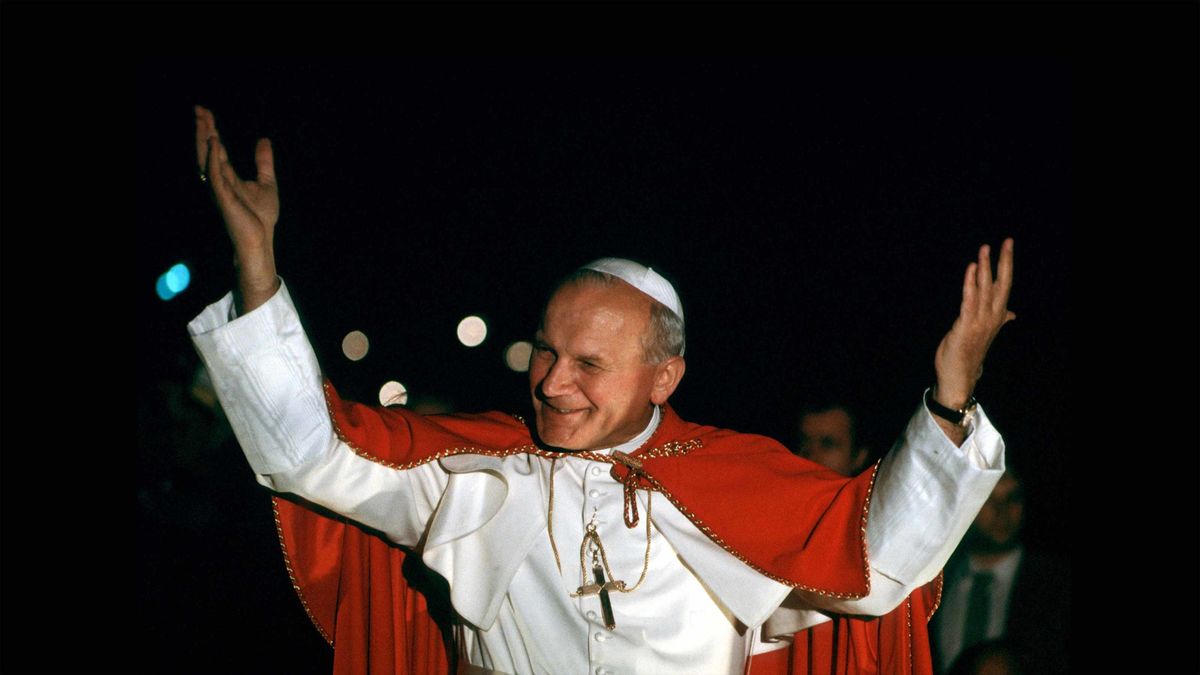The year was 1929. In a city in Poland, in Krakow, a 14-year-old boy was playing a soccer game, which was very important to him.
It was a final of a regional tournament and the winners would be rewarded with a three-day trip to Warsaw, the capital of Poland, a city that he and several of his humble teammates had never seen since this city, Warsaw, is very far from Krakow.
In addition, the trip would be completed with rides and other entertainment, which is why both he and his companions fervently desired victory.
The boy, whose name was Karol. He had lost his mother at the age of nine – I repeat, he was 14 at the time – and he was the team’s goalkeeper.
The game was ending tied. In that case, for his institution, it was a triumph, because he had a point difference in the table.
Around the hour mark, in a confusing play, Karol, the goalkeeper, trapped the ball by throwing himself to the ground.
The opponents argued that the ball had passed the goal line and that therefore it was a goal, meaning that Karol’s team would have lost the game and therefore the trip.
But the referee stated that it had not been a goal, adding: “don’t complain to me. Because the goalkeeper stopped the ball, right on the line.”
And here is the unusual. The young archer approached the judge and said:
-It was a goal, sir. When I stopped it, the ball had already crossed the line. You were covered and that’s why you couldn’t see well.
That attitude of young Karol did not go down well with his teammates, who therefore, by tying the game, lost the trip to Warsaw, which was the prize.
Instead he was serene. He knew that his conscience would take away any undeserved reward.
He was showing his inner nobility early. So much so that 44 years later, at the age of 58, Karol, who was none other than Karol Wojtila, was elected Pope with the name of John Paul II.
In 26 years in office he won the support of Muslims when he visited Lebanon, Egypt, Jordan and Syria.
He also aroused the affection and understanding of the Jews, by visiting the synagogue in Rome to pray together with his “Jewish brothers,” as he called them. Furthermore, he had the unusual courage to ask for forgiveness for some injustices committed in other centuries.
And he also found the respect and friendship of the evangelists, reaching out to them and trying to soften and accept differences.
All of this is usually called ecumenism, but I am going to allow myself to give another meaning to this approach. I would call it understanding.
Because John Paul II understood – due to his nobility of soul – that the best way to respect God was to respect all his children.
He understood that religions bring men together, but that only understanding unites them.
His pontificate was not easy for him.
When he took office, in 1978, Western governments were confronting the Soviet bloc.
A fierce Civil War was taking place in Lebanon.
In our country, to which this priest always felt spiritually close, the problem of the Beagle Channel brought us dangerously close to the War with Chile.
That conflict did not occur, fortunately, largely due to his intervention.
He was also the first non-Italian pontiff in more than four centuries and forever left the mark of his energy and his tireless fight for the closer relationship between man and his brother man.
He died in 2005. Even in the last weeks of his life, spent between hospitalizations, tracheostomies and other physical suffering, he had the courage – and the spiritual need – to appear in St. Peter’s Square to greet his faithful.
His throat barely allowed him to utter a word, but his heart urged him on.
He was, when he died, 84 years old, during which, as in that soccer game of his adolescence, he showed above all things, “good manhood.”
And a final aphorism
“There are men who do good, out of vital necessity.”
Source: Ambito
David William is a talented author who has made a name for himself in the world of writing. He is a professional author who writes on a wide range of topics, from general interest to opinion news. David is currently working as a writer at 24 hours worlds where he brings his unique perspective and in-depth research to his articles, making them both informative and engaging.




